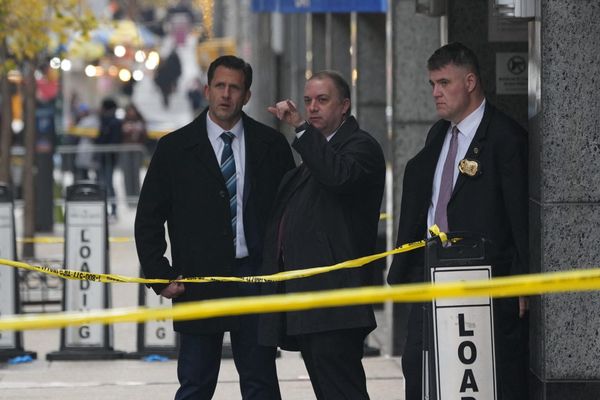
LOS ANGELES — Stem-cell treatments are set to increase across the United States, in the wake of a federal court ruling that dealt a severe blow to the FDA’s ability to regulate such treatments.
After a years-long legal battle, a federal court in Riverside, California ruled in August against the U.S. Food and Drug Administration in its lawsuit against the Cell Surgical Network, an organization that provides stem cell treatments to patients.
The FDA sued the Cell Surgical Network and California Stem Cell Treatment Center in 2018, alleging the stem cells that the Cell Surgical Network extracts and reinserts into the same patients’ bodies during surgical procedures meet the definition of biological drugs and should therefore be subject to strict FDA controls. The Cell Surgical Network disagreed, contending that it is simply removing and then reintroducing a patient’s own stem cells — not introducing any new substance or device into the body. If the FDA had prevailed, the agency would enjoy sweeping new authority over new stem cell treatments. The agency’s defeat means that the FDA cannot regulate stem cells as if they are pharmaceuticals. Since every person’s stem cells are unique, requiring drug-style human trials could theoretically mean that each individual stem cell treatment would have to be tested for years before it could be used on each and every patient. Such trials usually cost tens of millions of dollars each and requiring such trials would all but outlaw stem cell treatments.

The court rejected the FDA’s argument in a decision signed by Judge Jesus G. Bernal. “Unlike manufactured drugs, the SVF Surgical Procedure does not create any cellular or tissue-based product that did not previously exist within the patient,” Bernal found.
Dr. Elliot Lander, a board-certified urologist who co-founded the medical organizations alongside the late Dr. Mark Berman, hailed the ruling as a landmark victory for patients seeking to use their own stem cells and physicians researching these treatments.
“We prevailed, and we prevailed in a big way,” Lander said. “It was a very clear, strong victory.”
Lander and Berman established the California Stem Cell Treatment Center in 2010 to deliver “personal cell therapy” to patients, according to Lander. The pair would subsequently launch the Cell Surgical Network, a global web of more than 500 doctors dedicated to researching and advancing stem cell therapy. Lander and Berman license the technology to other physicians through the network.
Cell Surgical Network has promoted the use of stem cells derived from cell-rich adipose tissue—also known as fat tissue—to treat patients suffering from degenerative conditions.
The organization pioneered a surgical procedure during which a licensed physician targets stromal vascular fraction cells for extraction and then implants those same cells back into the patient during the same procedure or at a later date. The cells comprise a “personal autologous biologic,” meaning they are “from your own body,” Lander said.
“It’s not a drug,” Lander said, referencing the FDA’s claim. “It’s a medical procedure. And we felt very strongly that we should have the freedom to perform our medical procedures according to our training and experience and not have to be subjected to the same rules that Big Pharma would have to be subjected to in order to produce their product.”
“We can’t sell this to anybody,” he continued. “All we want to do is take care of our patients in our clinics and operating rooms, one patient at a time, and we’re very grateful that we’re able to practice our field of medicine, unencumbered, and continue to do research.”
For a urologist like Lander, the single outpatient procedure is relatively simple, involving a mini-liposuction via a local aesthetic typically targeting the back of the patient’s waist. The cells are placed in a culture and can be transferred back into the patient weeks, months or even years after the adipose tissue was removed, according to the recent legal decision.

“The important thing is it’s safe, and it turns out it’s really safe,” Lander said. “We’ve treated nearly 15,000 people now and had no deaths, no infections and no emboli (blood clots).”
The Cell Surgical Network has incorporated more than 15,000 people into its patient database.
The California Stem Cell Treatment Center, where Lander and Berman have administered stem cell treatments to more than 6,000 patients, operates locations in Beverly Hills and Rancho Mirage, Calif.
“The reason Mark and I became doctors in the first place is that we wanted to heal people. But drugs and surgeries don’t heal people—they just create conditions or some kind of milieu where you are able to heal,” Lander said. “There’s no pill that actually heals you, but your cells do. So we’re able to really make an impact in a way that was incredibly gratifying.”
Berman, a board-certified cosmetic surgeon and otolaryngologist, died in 2022. In a recent interview, his son, Sean, an advisor at Cell Surgical Network, welcomed the recent court decision.
“This is a huge win for human rights to have access to your own body,” Sean said. “I don’t know how anyone could envision taking that away from you.”







